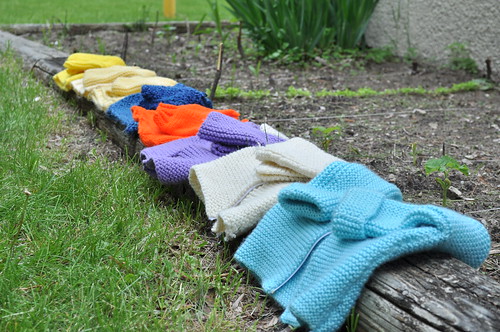Joel Stein is a pussy.
He says it over and over in his lighthearted memoir of modern manliness Man Made: A Stupid Quest for Masculinity.
Joel had an easy childhood, which he says led to his becoming a squishy adult who is a man solely by virtue of a penis. Upon the arrival of his son, he decides his weenieness is a problem and does what all intellectual heads-on-a-stick do: He researches the problem and sets out to fix it. He feels he’s not manly enough to be a good father to his son, so he learns how to be a man.
Unlike the product of so much of the research and development done by well-educated people over the age of thirty-five, this book is interesting. I want to read it more than once. I want my husband to read it. I want my son to read it so he can learn that it’s okay that his parents are both basically weenies and that for all manly purposes, he probably is too.
And that’s okay, as long as he doesn’t spend his life whining about it, and should he one day decide he’s not manly enough, to shut up and do something about it. Joel did something about it, and then instead of shutting up, wrote a hilarious and insightful memoir about the process and results. He gives credit where it is due and shows reverence for the men he meets without getting worshipful.
Among the tasks he sets for himself in a quest to do and be all things he’s put into the category of MANLINESS are learning baseball with a former professional baseball player, home repair with this father-in-law, a few days of boot camp and firing a tank with the US armed forces, camping with the Boy Scouts, spending a few days with fire fighters, and gambling an enormous amount of someone else’s money on stocks. The descriptions of his adventures are clear and hilarious, and the insights he gleans from them are well-put without being preachy or dry.
The conclusion isn’t as cheesy as I’d feared: He discovers that his ideas of manliness are shallow and that he’s already a great deal like the manly men he so wants to be for his son. The difference is that where Joel thinks about things and how he’s afraid of them, these guys get out and do it. They shut up, man up, and take the challenge. For Joel, it’s about getting over his definitions of manliness and of himself. It’s a quest for identity: “I didn’t want to go hunting because then I would no longer be the urban intellectual who could say he never hunted.” He hadn’t tried things not just because he was afraid of the things themselves, but because he was afraid of being confused about who he is.
An unexpected avenue of discovery for him was where he found great leaders and what qualities they possess that made him feel confident in their ideas and safe in their command. The first of these is a pubescent Boy Scout and the biggest is a drill sergeant. They serve but do not expect to be served. They are satisfied in themselves without being self-satisfied. “It’s humility. It’s not needing to express everything you feel immediately, because you’re not the most important person.” He discovers great manly men are great leaders.
The book’s greatest shortcoming is its almost complete lack of women. While the character of his wife Cassandra is developed enough not to feel as flat as women often do in men’s humor writing, she’s not enough to stave off criticism that women are left out. If the book weren’t funny and didn’t have such a clear and narrowly defined mission, it could easily become yet another treatise on the differences between men and women today. Instead, it speaks to the wide spectrum of men today and is already long enough without bringing women into it. So I’ll forgive him the absence of women.
Any somewhat-educated woman or righteous blowhard could go on and on about reinforcing and forcing conventional gender roles and stereotypes, but that misses the point. It’s not that Joel feels the need to conform himself to a mold and force that on his son; it’s that Joel has probably always nursed these insecurities and imminent fatherhood highlights them while bringing about an impetus to confront what he perceives to be his shortcomings. As much as it’s a book about a person becoming a man, it is a book about a person becoming who that person has always wanted to be.
He’s hilarious, self-deprecating, sophomoric, smart, sensitive, and kind. Most of his jokes involve sex and penis and are light and hilarious. They’re the sort of jokes the guys you knew in high school told. Somehow his little nuggets of loving insight blend smoothly with the sex jokes and vivid descriptions of his failures.
If you love Dave Barry, you’ll love Joel Stein. If either of them writes another book, I’ll definitely read it.
Joel has collected some other (positive) reviews of his book, including one he wrote himself, on his web site at The Joel Stein.




